In Danville, CA, a trashy secret lies beneath the town’s picturesque exterior: a littering epidemic that affects both the environment and the health of the community.
As litter accumulates, it not only diminishes the natural beauty of the area but also poses significant threats to wildlife and public health.
This article delves into the pervasive issue of littering, examines the behaviors that contribute to this problem, and showcases the innovative efforts of Bin Butlers in addressing this challenge.
Together, we will explore the reality of waste in Danville and discover how each individual can play a role in fostering a cleaner, healthier community.
The Trash Problem in Danville, CA
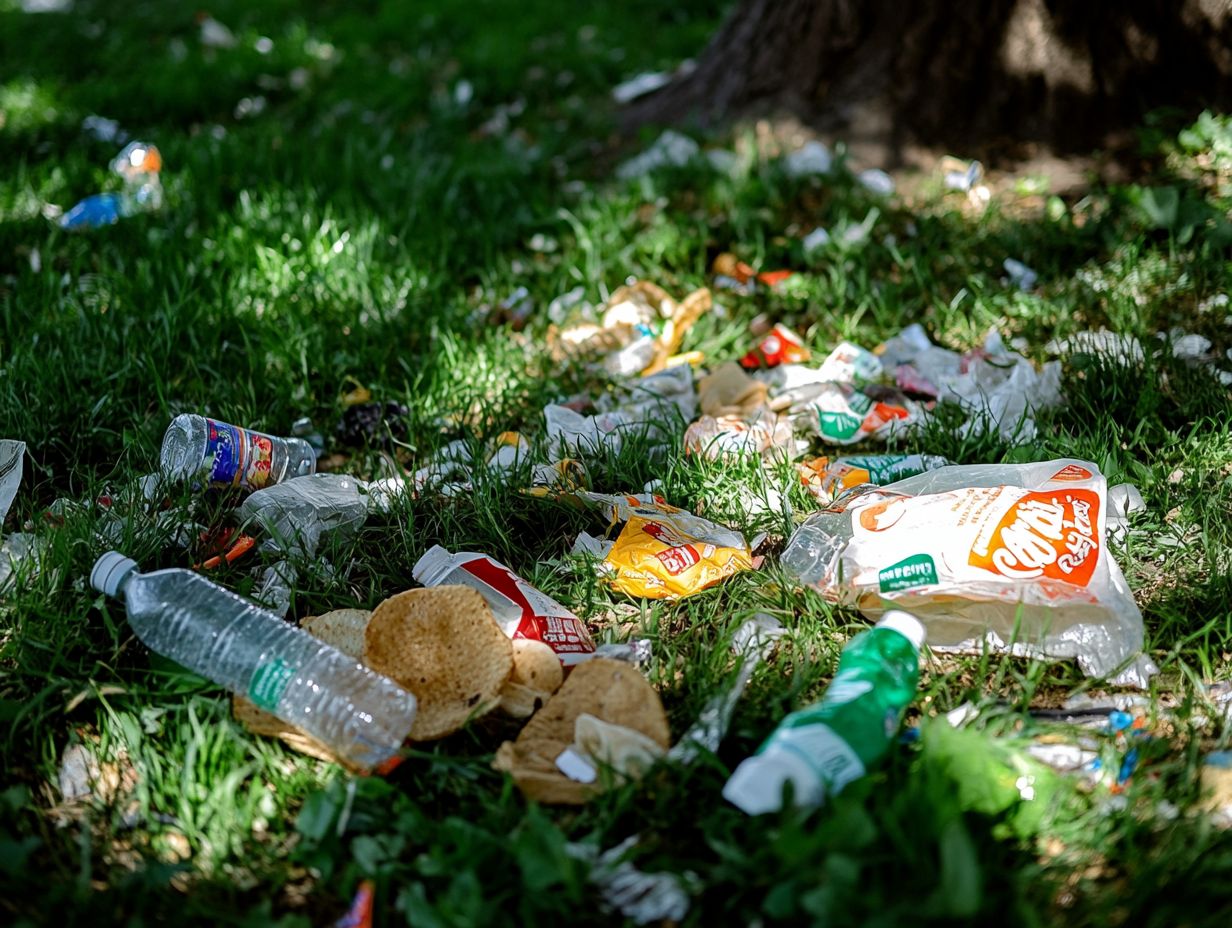
The trashy secret problem in Danville, CA, has emerged as a significant concern that impacts both the quality of life for its residents and the surrounding environment.
Increasing instances of littering and illegal trash dumping present a challenge for the community in addressing the environmental consequences of improper waste disposal.
Urban litter is not just an eyesore; it also poses serious risks to wildlife and contributes to pollution.
As individuals and organizations unite to tackle this issue, it is essential to understand the ramifications of these actions and promote a culture of accountability in waste management efforts.
Overview of Littering Issues
Littering continues to be a significant challenge in urban areas, including Danville, where concerns about illegal dumping have highlighted issues of accountability and environmental policy.
This practice not only detracts from the community’s aesthetic appeal but also poses considerable risks to local wildlife and public health.
Residents frequently observe discarded items, ranging from household appliances to hazardous materials, cluttering the streets and green spaces.
This situation has sparked a growing movement advocating against such practices.
In response, local authorities have taken steps to implement stricter waste management policies and have launched educational campaigns designed to promote environmental stewardship among community members.
Community initiatives, such as neighborhood cleanup days and workshops focused on proper disposal methods, have received considerable support.
These efforts encourage a collective approach to tackling the trashy secret of littering.
Ultimately, these actions highlight the essential role of shared responsibility in fostering a cleaner, healthier community for everyone.
The Impact of The Trashy Secret of Littering
The impact of littering goes beyond just the unsightly mess; it affects both the environment and public health in significant ways.
As litter builds up in areas around Danville, it not only contributes to pollution but also poses a risk to local wildlife and increases the burden on our landfills.
The environmental consequences include not only the visual degradation of our beautiful landscapes but also the potential for harmful substances to seep into the ecosystem.
Moreover, littering can have health repercussions for residents, especially when waste attracts pests or contaminates water sources.
Environmental and Health Consequences
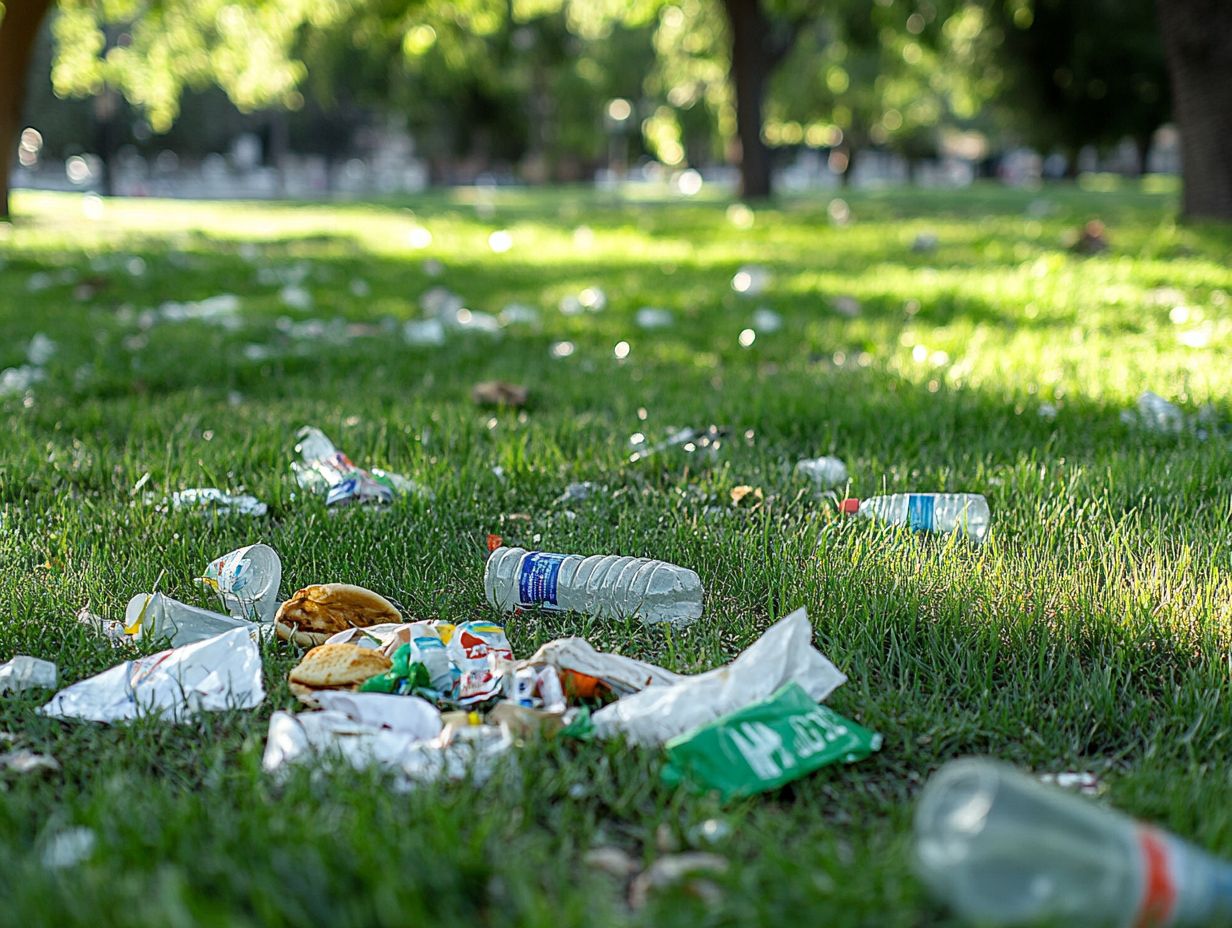
The environmental and health consequences of littering are quite significant, as it contributes to a larger carbon footprint and exacerbates food waste issues within our communities.
These concerns go beyond just how things look; littering can lead to serious soil degradation.
Toxic materials can leach into the ground, disrupting ecosystems and reducing agricultural productivity.
Water contamination is another pressing issue, as improperly discarded waste can enter waterways, harming aquatic life and altering natural habitats.
Local wildlife often mistakes litter for food, leading to severe consequences that can ripple through the food chain.
Moreover, communities face increased health risks due to litter accumulation, as it attracts pests and contributes to respiratory problems associated with pollutants.
These impacts not only jeopardize individual well-being but also place a burden on community health initiatives.
This underscores the urgent need for sustainable practices that promote cleaner and safer environments.
Identifying Litterbugs
Identifying litterbugs plays a key role in fostering accountability within any community.
By understanding their common characteristics and behaviors, individuals and organizations can develop effective strategies to address and combat littering.
Common Characteristics and Behaviors
Litterbugs often display specific behaviors that can be categorized into distinct patterns, particularly a lack of community responsibility and a disregard for the environment.
These behaviors are often influenced by various factors, such as convenience.
Individuals may opt for the easiest option available rather than seeking out a trash receptacle.
Social norms also play a significant role, as they dictate what is considered acceptable or expected behavior within peer groups.
When friends or neighbors commonly litter, individuals may feel less inclined to critically assess their own impact on environmental degradation.
Understanding these behavioral patterns is crucial for developing effective community outreach initiatives.
By addressing the social dynamics that contribute to littering and promoting positive communal standards, programs can encourage residents to take greater responsibility for their surroundings.
This approach ultimately fosters a more sustainable future for everyone.
The Role of Bin Butlers in Addressing Littering
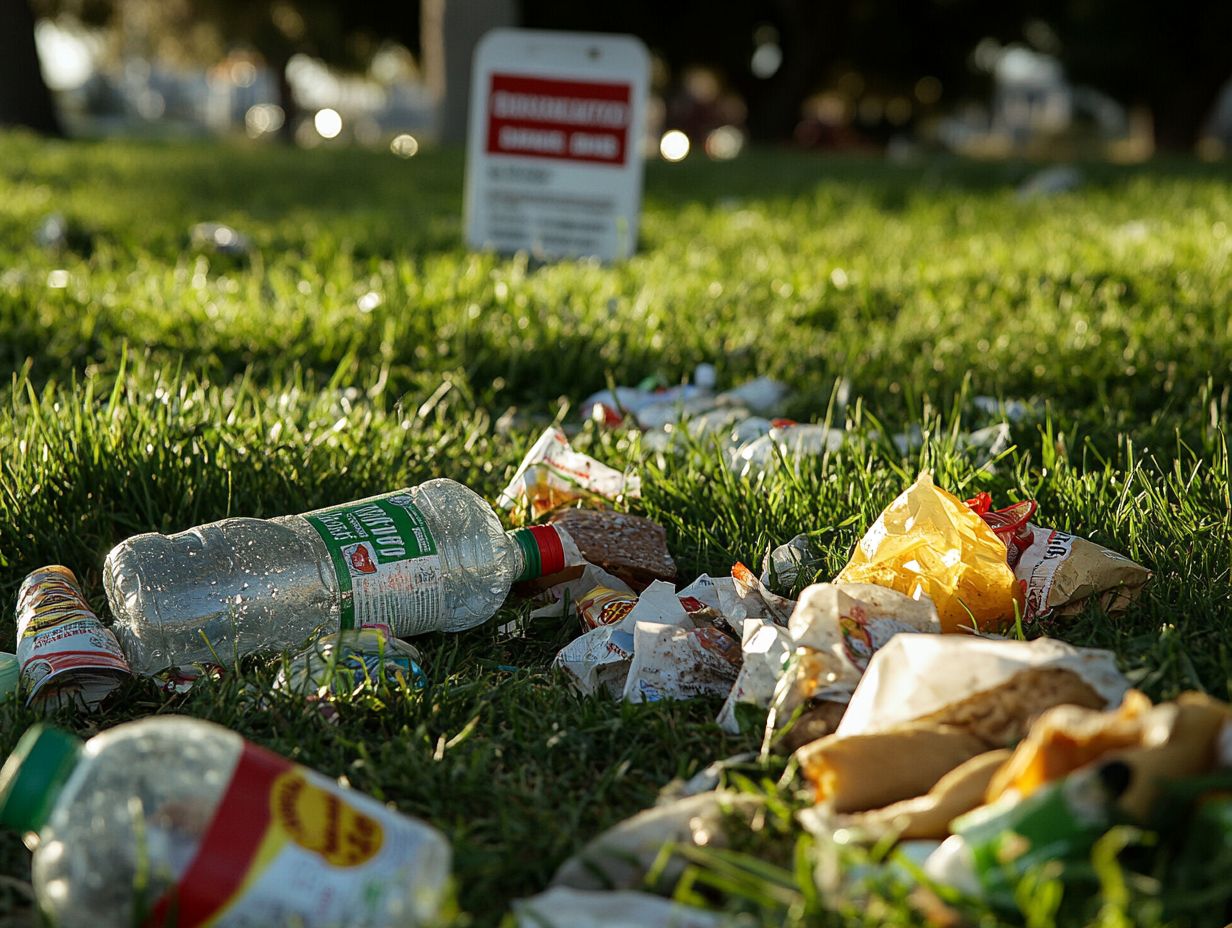
The role of Bin Butlers in tackling littering in Danville is significant, as they offer a proactive approach to refuse collection and support community cleanliness initiatives.
Their efforts contribute to creating a cleaner and more appealing environment for residents and visitors alike.
How Bin Butlers is Tackling the Trashy Secret Issue
Bin Butlers is addressing the issue of littering through various community responsibility initiatives and environmental efforts focused on both education and action.
To effectively engage with the community, they have rolled out educational programs designed to inform residents about the detrimental effects of litter on the environment and public health.
Regular community clean-up events complement these programs, encouraging local participation and fostering a sense of ownership over shared public spaces.
By partnering with local organizations, they are able to enhance their reach, facilitating collaborative efforts that unite diverse members of the community in the fight against littering.
Through a strong emphasis on the importance of collective action, these ongoing initiatives nurture a culture of environmental stewardship, ensuring that maintaining a clean environment becomes a shared priority for everyone involved.
What You Can Do to Help
There are many ways that individuals can actively contribute to the fight against littering.
By fostering a sense of community responsibility, people can engage in initiatives like Coastal Cleanup Day and make a meaningful impact.
Individual Actions to Combat The Trashy Secret of Littering
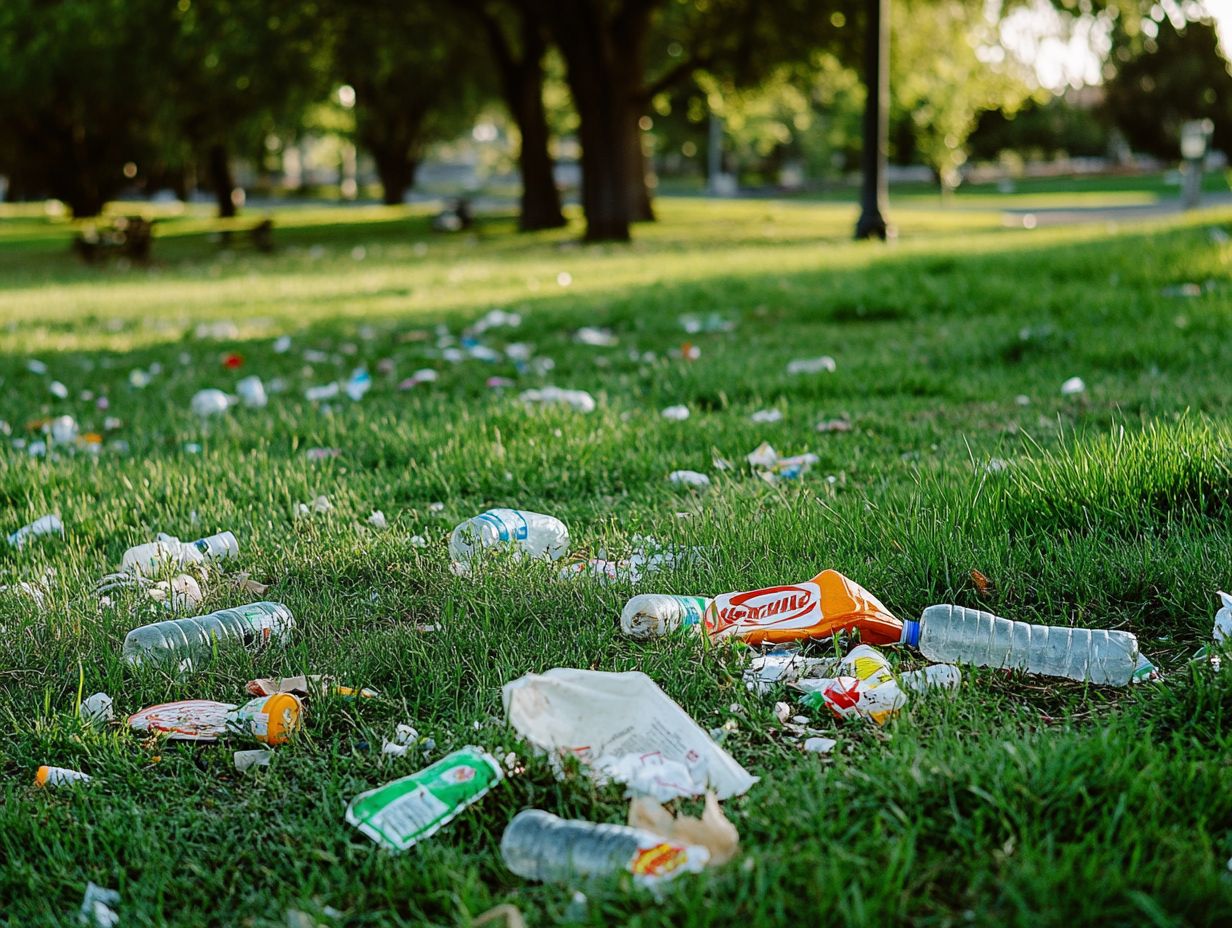
Individual actions are essential in the fight against littering, as even small efforts can lead to significant improvements in community responsibility.
To make a meaningful difference, individuals can engage in proper waste disposal by using recycling bins and composting organic materials, thereby preventing excess waste from ending up in landfills.
Advocating for local environmental policies is another important step; community members can express their support for regulations that promote sustainability, such as plastic bag bans or littering fines.
Participating in clean-up events not only fosters a sense of camaraderie among residents but also raises awareness about the importance of maintaining clean public spaces.
For example, a local neighborhood recently organized a cleanup day, which successfully removed over 200 pounds of trash.
This initiative not only made a tangible impact but also inspired residents to take ongoing action in caring for their environment by forming an eco-club to discuss further initiatives.
Supporting Bin Butlers’ Efforts to Expose The Trashy Secret
Supporting Bin Butlers in their litter reduction initiatives is crucial for cultivating a cleaner and more sustainable community.
Individuals and businesses alike can make a meaningful impact by participating in a variety of activities that encourage environmental stewardship.
Volunteering for local clean-up events not only enhances the area but also builds community confidence and pride.
Contributions to Bin Butlers can provide essential resources for their ongoing efforts, enabling them to broaden their reach and effectiveness.
Additionally, engaging in community programs organized by Bin Butlers fosters collaboration, creating a ripple effect that encourages more residents to get involved.
When we come together, these collective efforts lead to a healthier environment, improved public spaces, and an enhanced quality of life, demonstrating the significant impact of community-driven change.
The Future of Litter Prevention in Danville
The future of litter prevention in Danville relies on innovative solutions and active community engagement.
This approach is essential for fostering a more accountable and environmentally conscious society.
Potential Solutions and Progress Being Made
Various potential solutions are being explored to address the issue of littering, with a focus on effective prevention strategies and community engagement.
In Danville, local authorities have implemented enhanced waste management systems, ensuring more frequent garbage collection and providing public bins.
This approach makes it easier for residents to dispose of waste responsibly.
Public awareness campaigns have also proven to be essential, educating the community about the harmful effects of littering on both the environment and public health.
Furthermore, partnerships between the city and community organizations have led to organized clean-up events, which foster a sense of ownership and responsibility among residents.
While we’ve made significant progress, it’s crucial to continue innovating and adapting strategies that promote sustainable practices to ensure a cleaner future for everyone.
